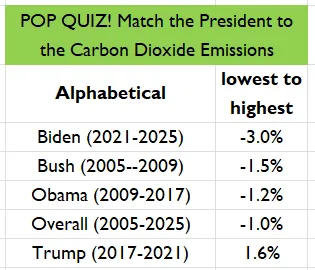https://joannenova.com.au/2024/04/calling-the-greens-bluff-ev-sales-fall-30-in-germany-and-minister-threatens-to-ban-cars-on-weekends/
By Jo Nova
Electric cars and carbon target fantasies are hitting the wall
Right when they are meant to be growing by double digits German EV car sales are down an astonishing 30% compared to a year ago. Their market share is actually shrinking. EV’s are not much good at reducing carbon dioxide over their lifetime but they are very useful for pretending to “decarbonise” the transport sector. So this creates a vast hole in the German government’s so-called transition, which has fixed targets for every sector. Problematically, the transport sector just doesn’t seem to run on wind and solar panels, or pumped hydro. It’s hard to decarbonize. Liquid fuel is just too convenient.
It seems the German Transport Minister is threatening to ban weekend driving as an ambit claim to expose the absurdity of the Green’s position. He is warning that if the Greens don’t sign a change in legislation to average emission across all sectors, he will have to take drastic action to meet the transport sector goals, which means banning driving on weekends. (Trap set.)
The Greens responded like any petty tyrants would, saying he shouldn’t aggravate people unnecessarily, because there were other ways to fix the climate, like forcing everyone to drive slower. (Trap sprung.) The Greens stepped right into it:
“This claim is simply wrong,” Green parliamentary group leader Julia Verlinden told the German Press Agency, referring to Wissing’s threat of a weekend driving ban. She added that Wissing should not aggravate people unnecessarily because there are other ways to tackle climate issues, such as a speed limit. — Politico
Naturally, at the next election, policies that make people drive slower to stop storms 80 years from now will sink like a boat full of burning cars.
Volker Wissing (the Transport Minister) is a member of the Free Democratic Party (FDP) which is theoretically a centre right party. Because the German government is a “traffic light coalition” of three different parties, he needs to work with the Greens to get legislation passed, but he doesn’t have to help them win the next election.
As Pierre Gosselin at NoTricksZone points out the German government are not even close to hitting their EV targets: “The massive sales drop is bad news for the current German socialist-green government, which aims to have 15 million vehicles on the road by 2030. Currently there are just 1.4 million!”
So they’re 13.6 million cars short with only 5 years and 9 months to get there. At the current rate of sales they’re going miss their target by 11 million cars.
Germany Electric Car Sales Plummet 30% As Country Floats Idea Of Weekend Driving Ban!
Drastic slump: Electric car registrations in Germany fall by almost 30 percent
Germany’s ambitions to take a leading role in electromobility suffered a severe setback in the first quarter of this year. A significant drop in sales is emerging. Only 31,384 electric vehicles were newly registered in March, a drastic decrease of 28.9 percent compared to the previous year. The collapse in registrations contrasts with the political goals and underlines the gap between political planning and actual market conditions. The challenge lies in whether political measures are effective enough to counter consumer preferences and market dynamics
Electric car shock: market share falls to 11.9% – end of subsidies exposes Germany’s dilemma
The abolition of the electric bonus at the end of 2023 has revealed another problem. The sector’s dependence on government subsidies became visible. This has further exacerbated the crisis of confidence in the electric car market.
And so we arrive at the ugly point where the planned economy meets the real one:
German minister threatens ‘indefinite driving bans’ on weekends
By Šejla Ahmatović Politico, [Translated by Google]
The ruling coalition has been fighting over legislation that sets out binding climate targets.
Germany’s transport minister is threatening to ban driving on weekends to meet climate goals if the ruling coalition does not pass reforms to the Climate Protection Act by July.
A reduction in traffic to help meet the climate goals would only be possible through measures that are difficult to communicate to the public, such as “comprehensive and indefinite driving bans on Saturdays and Sundays,” Wissing added.
All Wissing is asking for is to spread the emissions reductions over other sectors:
The planned amendment to the emissions-reduction law allows climate goals to be reviewed for compliance by looking at all sectors together instead of individually. If the overall target is missed two years in a row, then the federal government is to decide in which sector and with which measures the permitted total amount of carbon dioxide emissions is to be achieved by 2030.
If the planned reforms are not passed through parliament by July 15, Wissing warned, the Ministry for Digital and Transport would be obliged to submit an “immediate action program that ensures compliance with the annual emission levels of the transport sector” until 2030 — which would include a driving ban on weekends.
Wissing has already said the government is not looking to put speed limits on highways. He’d probably quite like it if the Greens adopt that policy at the next election. The Greenpeace mobility expert (as if there is such a thing) is Clara Thompson who said that Wissing was coming up with “horror” scenarios to distract from his own failures. But at least as far as Politico reports it, she didn’t have any suggestions of how to solve electric vehicle nightmares with frozen batteries, slow charging, expensive repairs, car sickness, combustible materials, and holiday hell stories.


